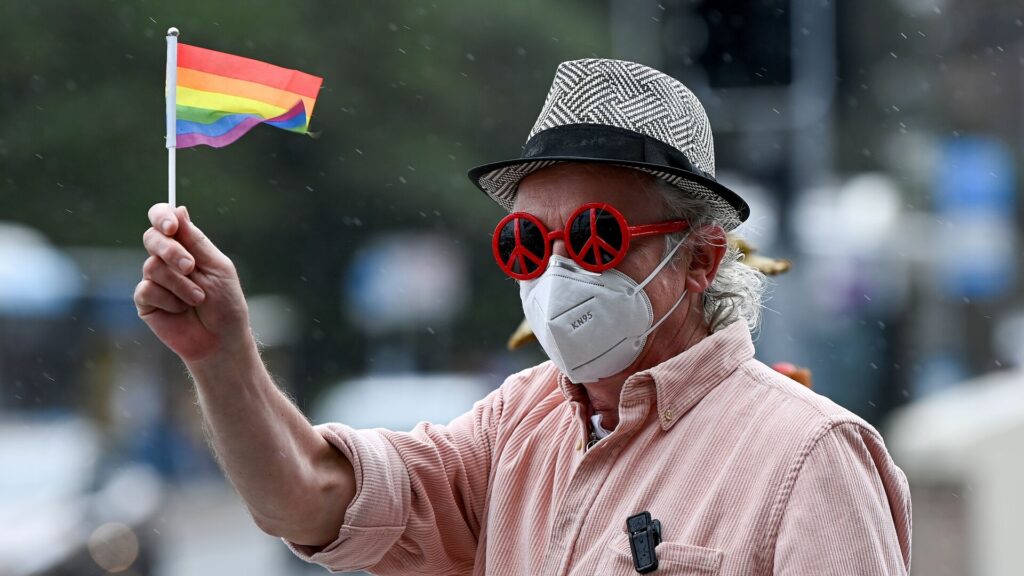The ‘trans debate’
Writing in the Sydney Morning Herald, Associate Professor Ada Cheung an endocrinologist from Melbourne University attempted to put some nuance and perspective in the debate about trans athletes by noting that of 71,000 Olympic athletes, only two had been women who had transitioned from men. Neither of these two athletes performed particularly well.
These numbers place the current moral panic of trans athletes overrunning women’s sports into some sort of proportion.
As I shared these statistics with friends, they responded that while they support the inclusion of trans athletes at the elite level, their concerns are on the local. Specifically, they raised the potential risks associated with their daughters competing against trans athletes with no monitoring of hormones.
They went on to say that they did not want to see any further marginalisation of the trans community but thought that this was an important discussion to have.
The question is, however, how can we have such a conversation respectfully and with nuance, while not further marginalising this vulnerable community? How do we raise concerns – valid or otherwise – without accusations of ‘transphobia’, ‘wokeness’, or other terms that are bandied about far too easily.
This brings me to Katherine Deves – who certainly has not been able to enter these discussions with any sense of subtlety.
While rightfully condemned for what Katherine Deves has been saying, we cannot deny that she has managed to tap into some veins of concern. At this stage, it does not matter whether these concerns be real or imagined, what matters is how we respond.
Lessons from the US heartland
I spent a year in the United States researching the Trump phenomena. I was not interested in the man himself, but why so many in the USA are drawn to his brand of politics.
While there is no doubt there are problematic elements within his base, the reality is more complex. While elsewhere I have detailed the five categories of Trump supporters, one characteristic that crosses them all is the belief that ‘political correctness’ had gone too far. Their position is that there exists a kind of ‘woke police’ that monitors not just what you say, but how you say it.
A former Democrat stated that she had turned away from progressive politics because she had been ‘scorned’ for not having the correct language when talking about specific issues. This led to a genuine sentiment that people felt silenced: they could not question, challenge, or simply query topics they did not understand without being ridiculed and labelled as being ‘phobic’ about something.
In a powerful 2020 report by Common Ground researchers compared the extremes of both ends of the political spectrum to religious zealots. In this scenario, it was not enough to believe, but what was demanded was an unquestionable loyalty to all tenets of the ‘faith’ or risk being labelled a heretic.
While I have witnessed this attitude from both sides of politics, I am someone who identifies as ‘progressive’ and would like to see a more empathetic and inclusive society, not one that repels and attacks those that we disagree with. I want to understand and respond, not mock and ridicule. I want to find common ground and look for ways to build together, not see greater divisions develop.
While we should rightfully criticise Deves, we should also use such opportunities to open constructive dialogue: telling those that have questions that its ok to ask them we should be prepared to answer in considered ways.
There is no doubt that at least three current generations were inaccurately educated to believe humanity can be divided into two simple categories (I am one of them), dozens of religious organisations that teach this binary, and many others who simply have not thought about the issue in detail.
To shutdown debate, does nothing to educate or gain their support. In fact, the types of attacks we have witnessed may simply drive them to support Katherine Deves.
We should learn from Israel Folau whose sermon resulted in such a counter-backlash, a proposed legislation that would have marginalised the entire LGBQTI community was almost introduced.
It created such a divide amongst certain communities, most of us would have preferred that Folau was ignored, and his sermon remain in an obscure part of Western Sydney.
What we should do next
Populists’ succeed when they convince parts of the population that they alone can represent the interests of the masses – no matter their background. In this way, a billionaire born with a silver spoon and no moral compass, and that lives in Mara Largo convinces a vast majority of the rust belt towns that he understands their plight.
The elites, on the other hand, are seen to look down at these same people. In this way, the more organisations such as the New York Times mocked Trump for his crassness and bungling, the easier it became for him to argue that he was nothing like the coastal elites.
When Deves made her comments, we should have demanded she justify her position and provide evidence – she would have had none. Sporting organisations, researchers, and advocates (as well as the rest of us who care about inclusion) should have opened dialogue.
The derision and accusation of transphobia gave Deves more airtime than she deserved. It gave her supporters the right to claim that free speech was being silenced.
Worst of all, it gave those with questions or concerns – no matter how genuine – nowhere to go except into the arms of Deves and others of her ilk.
Professor James Arvanitakis is an Adjunct Professor at the Institute for Culture and Society at Western Sydney University, and a Fulbright Scholar.









